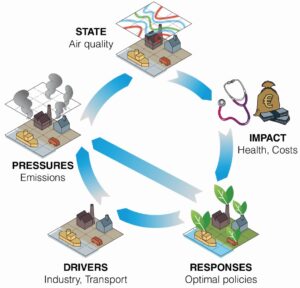Air Pollution Policies foR Assessment of Integrated Strategies At regional and Local scales
APPRAISAL is a European project under the Seventh Framework Programme (FP7) with the aim of assessing the strengths and weaknesses of the different methodologies used in the Member States for air quality assessment and monitoring, and which intends to propose possible ways to improve these methodologies (and also the way in which their efficiency is measured) through guidelines.
APPRAISAL wants to offer technical and scientific support to air quality policy makers. The project was developed in two main phases. During the first, a comprehensive review of air quality and health assessment methodologies was carried out, these were analyzed, and the possibility of implementing integrated assessment model (IAM) tools was also assessed; key areas to be addressed for research and innovation were identified; and key stakeholders to be involved were examined. While in the second phase, the guidelines were tested on two case studies: the Porto region (PT) and the Brussels area (B). The scheme suggested by the EEA (European Environmental Agency), namely the DPSIR (Driver, Pression, State, Impact, Response) was used as a methodological reference.
THE ROLE OF TERRARIA
TerrAria was responsible for the development of the online database that enabled the survey of methodologies used at Member States and allows the results to be visualized concisely through graphs and reports. Also, TerrAria supported the partners responsible for the case studies in applying the chosen methodology and was responsible for producing the project Layman’s Report in epub form and served on the Steering Committee.


